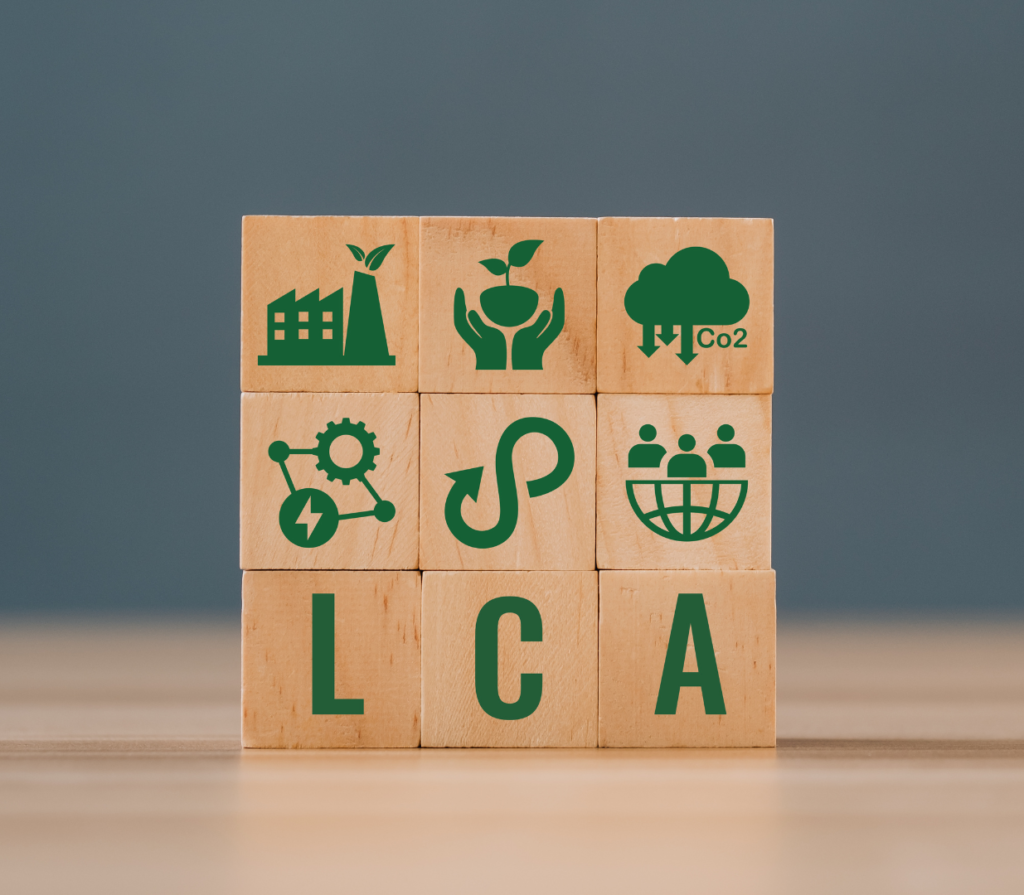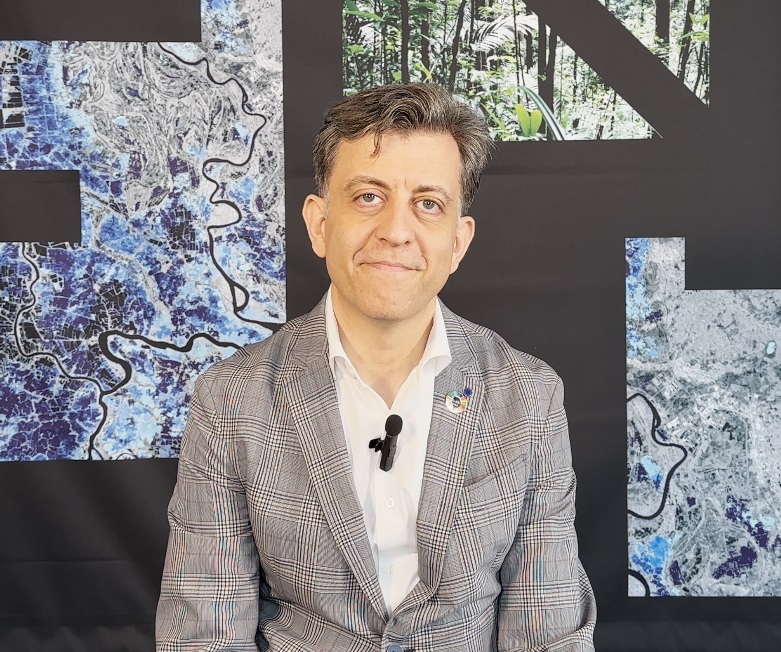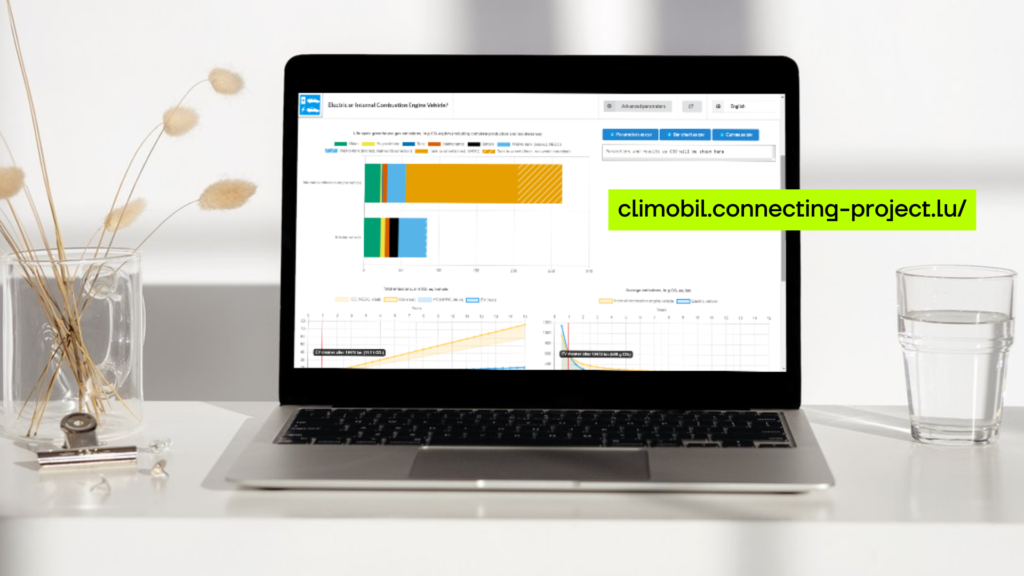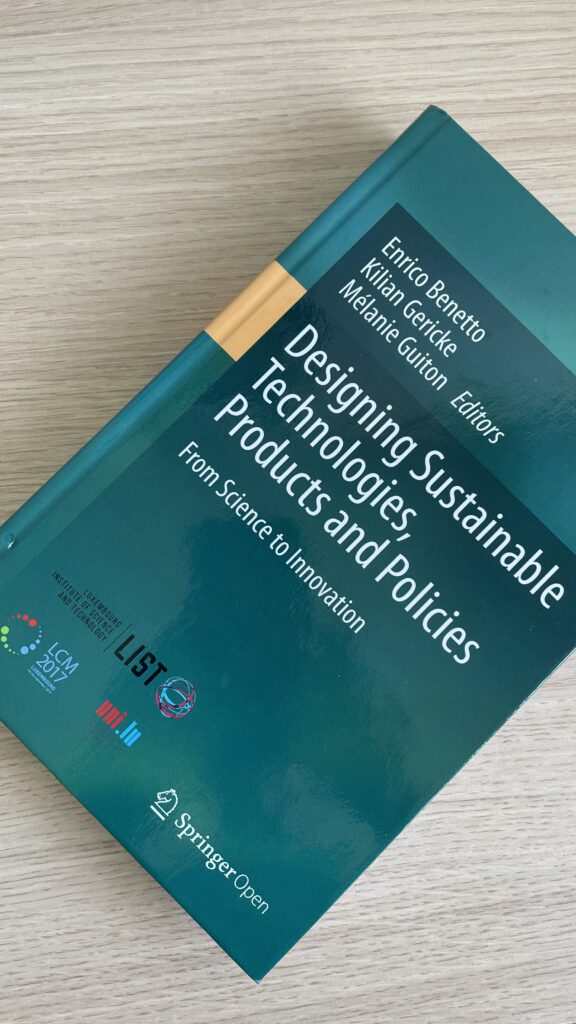BACK TO RESEARCH WITH IMPACT: FNR HIGHLIGHTS
As the FNR marks 25 years since its creation, we highlight 25 examples of FNR-supported research with impact. Since 2006, Enrico Benetto has led research that plays an important role in preventing greenwashing and enabling responsible decisions on the adoption of policies, on the consumption of products, and on the development of technologies that may trigger significant environmental impacts: Life Cycle Assessment (LCA), the development of computer models, indicators and metrics for the environmental assessment of materials, products, technologies and policies.

How the LCA field has developed in the last 25 years
Computational approaches and tools have become essential for the field, since it now involves the development of computer models for simulation and optimisation of life cycles, as well as the use of Artificial Intelligence and Machine Learning, which are for example used for the estimation of missing data and the replacement of deterministic models by surrogate models.
“Our research group has certainly pioneered these developments, having focused since the beginning on the integration in LCA of modelling approaches, including economic and agent-based models, process simulation and optimization, neural networks and system dynamics. These developments have been increasingly used in industry, where the LCA practice has evolved to adapt to digitalisation of manufacturing and product design operations. ”Enrico Benetto Head of Research Unit "Life Cycle Sustainability and Risk Assessment" at LIST
From cradle to cradle to grave: LCA evaluates environmental impacts
The objective of LCA is to evaluate the environmental impacts generated by, for example, a product, over its life cycle – from cradle to grave including reuse and recycling patterns – while considering the different environmental problems, such as looking at ecosystems damages rather than just focussing on climate change.
One area the research field aims to support is the ecodesign and environmental optimisation of products and technologies – from complex products like for example and electric cars to simpler artefacts, like e.g. packaging. It also helps to assess the overall benefits and impacts a product will generate at market and societal level, in relation to policies or consumption patterns, such as the global environmental benefits from the deployment of electric mobility because of specific policies or market uptake.

“Our research is very important to prevent greenwashing and to enable taking responsible decisions on the adoption of policies, on the consumption of products and on the development of technologies that may trigger significant environmental impacts at scale. A good example for the case of consumers is the one of labelling of consumer goods, e.g. in food retail and apparel sectors. ”Enrico Benetto Head of Research Unit "Life Cycle Sustainability and Risk Assessment" at LIST
“Many labelling schemes rely on LCA standards like the Environmental Footprint of the EU Commission to provide a science-based and comprehensive assessment of the environmental performance of products, thereby enabling consumers to make choices responsibly. At the business level, financing of operations and technology development to reach Climate Targets of Paris Agreement are subject to criteria and reporting obligations set by policies like the EU Taxonomy for Sustainable Finance and the Corporate Sustainability Reporting Directive (CSRD) which use LCA indicators for their thresholds. ”Enrico Benetto Head of Research Unit "Life Cycle Sustainability and Risk Assessment" at LIST
Climobil – a publicly available tool to help consumers choose vehicles
The research of Enrico Benetto’s group provides science-based indicators and recommendations, informing and influencing the decision making of industry, policy makers and consumers on consumption and production patterns. The impact, while difficult to quantify, has the potential for broad and diverse impacts.
“It is fair to say that our research has impacted the LCA research field and more recently the broader scientific and stakeholders’ community.”
The project CONNECTING featured a premiere: It was the first time researchers connected an agent-based model to LCA to model the environmental impacts associated with electromobility scenarios, for the specific case of Luxembourg.
“Apart from the methodological novelty, the project anticipated the non-fulfilment of the mobility policy targets set for the horizon 2020, and identified the causes and levers for improvement. Also, it led to a follow up project (HERMES, with the company ENGIE) on H2 mobility and eventually to a calculator for the general public – ‘Climobil’ “.
The publicly available online tool “Climobil” (https://climobil.lu/) gives users science-based comparisons of the lifecycle greenhouse gas emissions in g CO2 eq./vehicle-km from passenger cars, namely diesel or petrol vs. battery-electric. The tool’s aim is to help environmental conscious consumers to make an informed choice of which vehicle to buy.
“The tool has gained in popularity, increasing the international exposure of LIST and offering the opportunity to collect significant feedback on various ways to improve the calculator. As an example, only in the period going from 1 January 2021 to 10 September 2021, Climobil users came from 5 different continents (Europe 77.73%, Americas 15.10%, Asia 4.14%, Oceania 2.10% and Africa 0.85%) totalling more than 10,600 visitors.”
LUCAS: Economic modelling to evaluate impacts of bioenergy scenarios
“Our first FNR funded project, LUCAS, addressed the development of LCA models to evaluate the large-scale impacts of bioenergy scenarios, in particular using economic modelling. This was one of the first combination of economic modelling and LCA in the field which has inspired several other research projects in Canada, France and Scandinavian countries and also the development of policy references, such as the International life cycle database (ILCD) handbook of the EU platform on LCA, edited by the JRC Ispra.”

LCA for funds and bonds
Finally, another example of high-impact project is REFUND, where LCA was adapted to assess the environmental and social impacts of equity funds and bonds. This work was also referenced in the last IPCC report, reaching global exposure. The project shed light on the sustainability of green and sustainable labelled funds.
“The REFUND LCA model was applied to a sample of 1340 sustainable (SRI – sustainable responsible investment) and conventional equity funds domiciled in Europe and their 11,275 unique holdings. We extended our application to a case study of funds self-classified as Article 8 and Article 9 funds under the recent European Sustainable Finance Disclosure Regulation (SFDR). The model estimated life cycle emissions for 94% of the companies held – compared to 17% coverage in the Carbon Disclosure Project (CDP).”
“When including scope 3, i.e. lifecycle emissions, the exposure to GHG emissions of both SRI and conventional funds is two to three times larger than when considering only direct impacts from holdings’ operations.”
Benetto explains that 24% of the sampled Europe-domiciled SRI funds are more exposed to life cycle carbon emissions than the ETF tracking the conventional market index MSCI Europe. These results prove that the actual impacts of SRI labelled funds do not necessarily reflect the highest environmental standards people may expect.
In the same project, the team proposed 13 environmental and 13 social life-cycle-based, ready-to-use, and policy-relevant impact indicators, aligned primarily with the EU Sustainable Finance Disclosure Regulation (SFDR) for investment funds. The team estimated the impacts of a sample of 230 self-labelled sustainable investment funds for all indicators: the total estimated environmental impacts and social impacts are large, varying between 2.1 and 28.4 times the impacts associated with the consumption of one million EU citizens, depending on the indicator.
“We found similar impact ranges within a sample of conventional funds, given the heterogeneity of funds. However, when comparing two funds that are equivalent sustainable/non-sustainable pairs, we find that the sustainable fund is better on specific impact categories, but not all of these, therefore hinting again towards trade-offs in terms of impact categories also for sustainable funds. ”Enrico Benetto Head of Research Unit "Life Cycle Sustainability and Risk Assessment" at LIST
Future challenges: Relative assessments do not provide enough direction
Benetto sees two major challenges arising for the field of LCA and sustainability assessment is in the next decade: So far, research has focused on relative assessments, such as answering questions like “has this new product/technology lower environmental impacts than the older/business as usual one?”. The issue: Relative assessments do not address the question of whether a product or technology is actually viable, sustainable, compatible or not, with respect to thresholds or benchmarks reflecting limits not to be exceeded.
“Such absolute assessments become mandatory to evaluate the compatibility of production and consumption patterns with respect to planetary boundaries and climate targets like the Paris Agreement. This poses several research questions, in particular, on how to perform absolute assessments at the level of individual products and technologies, in particular when they are still in development phase and will be implemented in the far future.”


Future challenges: Social issues
A second issue is the emergence of social issues, especially inequality and mental distress. Achieving a fair and sustainable transition, requires a better connection between the environment and social dimension of sustainability, which have so far been considered as separate pillars.
“Therefore, the development of well-being indicators resulting from impact pathways connecting environmental impacts – like climate change – to social issues such as climate anxiety is a timely research topic. This poses, again, interesting research questions at the level of current and future individual products and technologies”
The team is currently working on these research questions in the framework of FNR and Horizon Europe funded projects.
“The research field of sustainability assessment will evolve to account for absolute impacts, focusing on well-being related metrics as end targets and using environmental metrics as intermediate objectives. Hopefully, these assessments will serve the design and evaluation of new economic models overcoming the economic growth imperative. ”Enrico Benetto Head of Research Unit "Life Cycle Sustainability and Risk Assessment" at LIST
Training PhD students & postdoc researchers
“Overall, 20-25 researchers have been trained or mentored in all FNR funded projects. This number includes PhD students and post-doc level researchers. The training was instrumental for their professional development and continuation of their career. A few of them have continued their career in academia and research centres, as professors or researchers, in Europe and Latin America. Others moved to policy making, in Ministries in Luxembourg. One has become a well-known influencer on YouTube on sustainability and environmental protection topics. Other ones moved to industry and consulting, to work on the development of more sustainable products and technologies. Eventually, a few continued their career at LIST in my research unit and started new research lines in sustainability as Principal Investigators, acquiring funding from FNR and European Programmes (e.g. Marvuglia, Rugani, Gibon, Schaubroeck, Petucco, Navarrete).”
Impact of FNR funding & international collaboration
“I am very thankful to FNR for having supported my research over all my career in Luxembourg. First, it allowed me to ramping up my activity and get international recognition. Then it supported the building and consolidation of a research group around it, increasing the critical mass of the research topic. Finally, it allowed replication and legacy, by sustaining other PIs in the domain to develop their own research line.”
“In addition to facilitating the collaboration with foreign universities (e.g. KTH, INSA Toulouse) and companies (e.g. ENGIE), I would like to mention, in particular, the funding from FNR for the organization of the Life Cycle Management Conference in 2017, which has been pivotal to boost the visibility and recognition of our research. As chair of the conference, the largest biannual event in our scientific field, I was proud to attract 726 delegates from 46 countries, including over 200 industrial practitioners, for a programme featuring more than 120 oral scientific presentations.”
FNR-funded projects (main applicant)
| Project title | Call year | FNR funding instrument |
| INTER | 2022 | TERRAGREEN the First Robotic-enabled Decision Support System for Agriculture |
| INTER | 2020 | Continuous lifecycle assessment of buildings and districts through real-time design and operation data underpinned by semantics |
| OPEN | 2019 | Life Cycle Assessment of green funds and bonds |
| BRIDGES | 2017 | Hydrogen-Electric Road Mobility Environmental Scenarios |
| CORE | 2014 | Consequential Life Cycle Assessment of multi-modal mobility policies – the case of Luxembourg |
| RESCOM | 2014 | Life Cycle Management (LCM) Conference 2017 |
| CORE | 2013 | Optimization based integrated process modelling-LCA: application to potable water production |
| INTER | 2013 | Environmental assessment of Dynamic Processes – considering time dependency in Life Cycle Assessment |
| CORE | 2009 | Indirect land use change effects in consequential Life Cycle Assessment of bioenergy |
Related highlights
25 examples of research with impact: Smart materials for a sustainable future
As the FNR marks 25 years since its creation, we highlight 25 examples of FNR-supported research with impact. Since arriving…
Read more
25 examples of research with impact: Advancing AI and Computer Vision: From space tech to better healthcare
As the FNR marks 25 years since its creation, we highlight 25 examples of FNR-supported research with impact. Since arriving…
Read more
25 examples of research with impact: Understanding the evolution of the workplace in the digital era
As the FNR marks 25 years since its creation, we highlight 25 examples of FNR-supported research with impact. Active in…
Read more
25 examples of research with impact: Breaking barriers in cancer research & treatment
As the FNR marks 25 years since its creation, we highlight 25 examples of FNR-supported research with impact. In Luxembourg…
Read more
25 examples of research with impact: Shaping the future of historical research in a digital age
As the FNR marks 25 years since its creation, we highlight 25 examples of FNR-supported research with impact Andreas Fickers…
Read more
25 examples of research with impact: Harnessing nature’s power for a sustainable future
As the FNR marks 25 years since its creation, we highlight 25 examples of FNR-supported research with impact. Since arriving…
Read more

